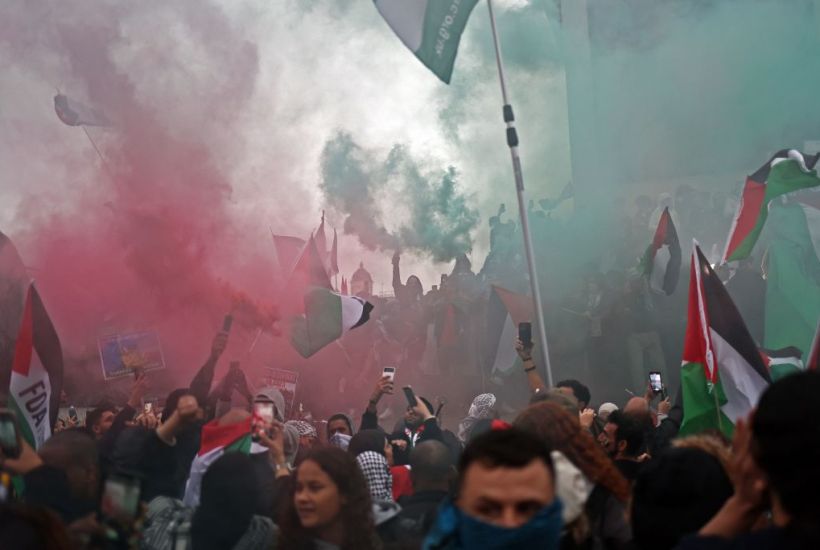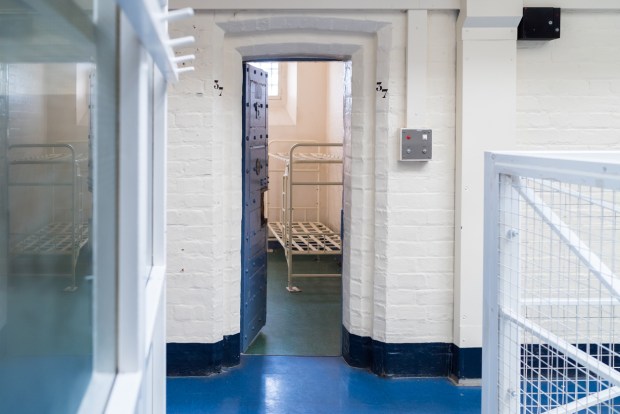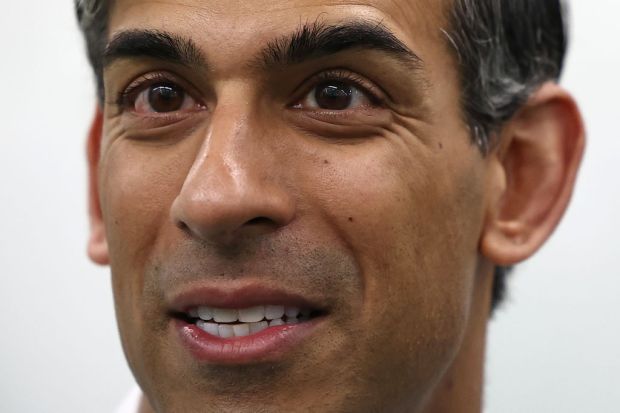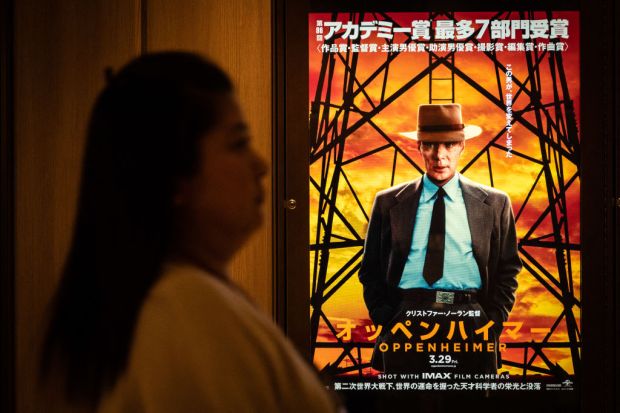As an international lawyer, splitting my time between London and Brussels, I dare say I might be considered one of Theresa May’s ‘citizens of nowhere’. Nonetheless, as the protests about the Israeli response to the atrocities committed by Hamas on 7 October have become more strident and legally problematic, I have also had cause to reflect on my heritage as a dual British-Israeli national.
Much of my mother’s side of the family arrived in Israel from Bukhara (then part of the Russian empire, now modern-day Uzbekistan) at the end of the nineteenth century. They were prosperous silk traders who originally settled in the Bukharan Quarter of Jerusalem, following pogroms in Russia. When I was young, I was taken to see a community building that my family had established in Jerusalem in 1902.
Most Israelis see it as calling, not only for the destruction of our country, but also for a genocide
The October Revolution of 1917, and the subsequent rise of communism, meant that they could never return. Eventually, my grandparents moved to the suburbs of Tel Aviv where they had three daughters. Israel declared its independence as a sovereign nation in 1948 and was admitted to the UN, as a full member state, in 1949.
Why do I mention all of this? In part, as background – I have extensive family in Israel and a personal stake in what happens there. But also as an antidote to the idea, now pedalled by some fashionable western commentators, that Israel is a European colonial project. Of course, most Israeli Jews are now second or third generation ‘sabras’ (born in Israel). But large numbers of the original immigrants to Israel came from north Africa and Asia. Many of those communities were either persecuted, or expelled from their homeland, simply for being Jews.
The attack of 7 October was one of the most significant in Israel’s history. More than 1,400 people were killed. At least 240 people were taken hostage. Of those, at least 12 British nationals were murdered and a further five are missing.
The reaction by some in the UK to Israel’s response to this attack has been remarkable. In the past fortnight, I have seen former colleagues at University College London call for ‘intifada until victory’ and a ‘mass uprising’. On the streets of London, protestors can be found calling for ‘jihad’. Some carried signs offering support to Hamas (a proscribed terrorist organisation).
On 30 October an Israeli government spokesman, Eylon Levy, posted a video on X, entitled ‘In your country, there is problem’ which combined Sacha Baron Cohen, in his guise as Borat, singing ‘throw the Jew down the well’ with western marchers shouting ‘long live the intifada’ and ‘gas the Jews’.
Perhaps the most troubling thing that I have noticed, is the apparent normalisation of thousands of demonstrators chanting ‘From the river to the sea, Palestine will be free.’ The meaning of this is sometimes said to be open to interpretation. This is not true. It has a single meaning: that the sovereign state of Israel should be superseded by a new nation, called Palestine. Most Israelis see this as calling, not only for the destruction of our country, but also for a genocide.
The Guardian, rarely a friend to the Israeli government, recently acknowledged that In 1966 then Syrian leader Hafez al-Assad (the father of the current Syrian dictator) expressed his desire to throw Israeli Jews ‘into the sea for good’. The Hamas charter, which calls for the elimination of Israel, also advocates ‘the full and complete liberation of Palestine, from the river to the sea.’ When people show you who they are, you should believe them.
It is notable that when extremist Israeli settlers use these words, in reverse, claiming rights to historic Judea and Sameria, the accepted response is to say this would amount to ethnic cleansing.
As the protests commenced, the Home Secretary, Suella Braverman, stated that she wished the police to use the full force of the law, not only against displays of support for Hamas, but also against any attempts ‘to harass and intimidate British Jews.’ She highlighted the ‘river to the sea’ chants, asking the police to consider whether they should be understood as an expression of a ‘violent desire to see Israel erased from the world’, and whether this might amount to a racially aggravated public order offence.
Shortly afterwards the legal commentator Joshua Rozenberg set out a helpful summary of both terrorism and public order offences which might be committed by the more egregious demonstrators. One offence he highlighted criminalises those using ‘threatening or abusive words… within the hearing or sight of a person likely to be caused harassment, alarm or distress.’
Despite the government’s stated desire to protect an anxious and vulnerable community, the response of the Metropolitan police has been shocking. Of course, people should be able to demonstrate against the Israeli government, call for a ceasefire, or peace in the region. But the Met has refused to take action against this plainly racist chant – unless it is made outside a synagogue, or a Jewish school, or ‘against a Jewish person’ – claiming that there is a ‘chasm’ between what the law provides and what the public expects (while also calling for additional powers).
Yet, as far as I am aware, there are no clear precedents to suggest that a prosecution against those chanting ‘from the river to the sea’ would fail, and prosecutors seem unwilling to bring a test case. Some might see double standards, given the zealous interventions by the Met during the Sarah Everard vigil and the coronation.
It is instructive to compare Keir Starmer’s swift response in suspending Andy McDonald MP over a (more nuanced) use of the ‘river to the sea’ formula, which only demonstrates how objectionable the words truly are.
I do not claim to speak for Britain’s Jews, nor for the small number of Israeli nationals in the UK. But as a resident of central London, I certainly feel threatened and alarmed. If the Met feels confident Jews are not being exposed to this language, it can only be because they feel too worried to venture into central London during these protests.
Rather than granting the police new powers to combat the nebulous concept of ‘extremism’, it is important to test the wide ranging public order powers we already have. If there are specific gaps they should be filled. Some argue that it is only a radical minority of protestors promoting fanaticism. If so, that should make the task far easier.
Antisemitic hate crime has soared in recent weeks. I would simply ask the police and prosecutors to take action now, before it is too late, and someone in the UK acts on these hateful calls to arms.
Got something to add? Join the discussion and comment below.
Get 10 issues for just $10
Subscribe to The Spectator Australia today for the next 10 magazine issues, plus full online access, for just $10.


















Comments
Don't miss out
Join the conversation with other Spectator Australia readers. Subscribe to leave a comment.
SUBSCRIBEAlready a subscriber? Log in